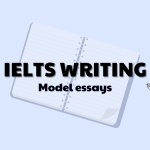
Q1: Why do you think it’s true that most young children enjoy learning songs and poems?
- Children are naturally drawn to rhythm, melody, and repetition.
- Songs and poems improve memory and language skills.
Young children are naturally drawn to songs and poems because they are rhythmically engaging and linguistically stimulating. The melody and repetition of these forms make them easier to process and retain. Additionally, songs and poems often incorporate vivid imagery and playful language, which captivate children’s imagination. Also, most nursery rhymes are really catchy which is captivating for children.
rhythmically (adv): nhịp nhàng
linguistically stimulating: kích thích ngôn ngữ
melody (n): nhịp điệu
repetition (n): sự lặp lại
vivid imagery: hình ảnh sống động
Q2: Do you think it’s easier to remember the words to something as a child and more difficult when we become adults?
- Children learn unconsciously, while adults rely on conscious effort.
- Adults juggle multiple responsibilities, making retention harder.
- As people age, working memory and recall speed decrease.
Absolutely. I think most children do not consciously learn something. They mostly inactively acquire words throughout their life, whereas adults rely more on explicit learning, which requires conscious effort. Moreover, as people age, ability to retain information and recall speed tend to decline, making memorization more challenging. Additionally, adults often face cognitive overload due to their myriad responsibilities, which can hinder retention.
explicit (a): rõ ràng, dứt khoát
cognitive (a): liên quan đến nhận thức
myriad (n): vô số
hinder (v): gây cản trở
Q3: Do you think learning songs and poems is a waste of time?
- Improves pronunciation, vocabulary, and syntax.
- Strengthens cognitive functions through repetition.
- Songs and poems reflect history, values, and traditions.
On the contrary, learning songs and poems is a highly effective pedagogical tool. They facilitate linguistic ability, enhance cognitive flexibility, and even bolster emotional intelligence. Lots of lessons are taught to children through the use of nursery rhymes or children’s poems. Therefore, dismissing songs and poems as trivial would be an oversimplification of their immense educational value.
pedagogical (a): sư phạm, giáo dục
bolster (v): ủng hộ
trivial (a): tầm thường, không đáng kể
immense (a): mênh mông, rộng lớn
Q4: How practical is it for younger students to learn facts about the world (e.g., dates in history)?
- Young learners struggle with abstract concepts but grasp narratives.
- Storytelling and interactive learning make historical facts meaningful.
- Facts become more practical when linked to real-life experiences or modern-day events.
It is practical, but it depends on how the information is presented. Younger students often struggle with rote memorization of abstract data, such as historical dates, because they may not see their relevance. However, if these facts are taught through storytelling, visuals, or interactive activities, they can become more meaningful and easier to remember. For example, using a timeline with engaging historical narratives can help children develop a deeper interest in history rather than just memorizing numbers.
rote memorization: học thuộc lòng
Q5: Are there any techniques that schoolchildren can use to remember new information more easily?
- Combining visuals with text enhances retention.
- Acronyms, rhymes, or chunking information into smaller parts.
- Reviewing material at intervals to reinforce learning.
Yes, there are several effective techniques. One of the most useful methods is mnemonics, where students use acronyms or rhymes to remember information. This technique is particularly beneficial for memorizing lists or sequences, as it allows learners to encode information in a structured and engaging manner. Another technique is visualization, where they associate new concepts with images or mind maps. By creating strong visual connections, this method not only reinforces memory retention but also makes abstract concepts more tangible and easier to grasp.
Vocabulary
retention (n): sự có được, sự sở hữu
Mnemonic (n): kỹ thuật ghi nhớ từ
acronym (n): từ viết tắt
sequence (n): sự liên tiếp
encode (v): mã hoá
tangible (a): hữu hình
grasp (v): nắm bắt
Đăng ký lộ trình tư vấn phù hợp và test đầu vào miễn phí tại đây





